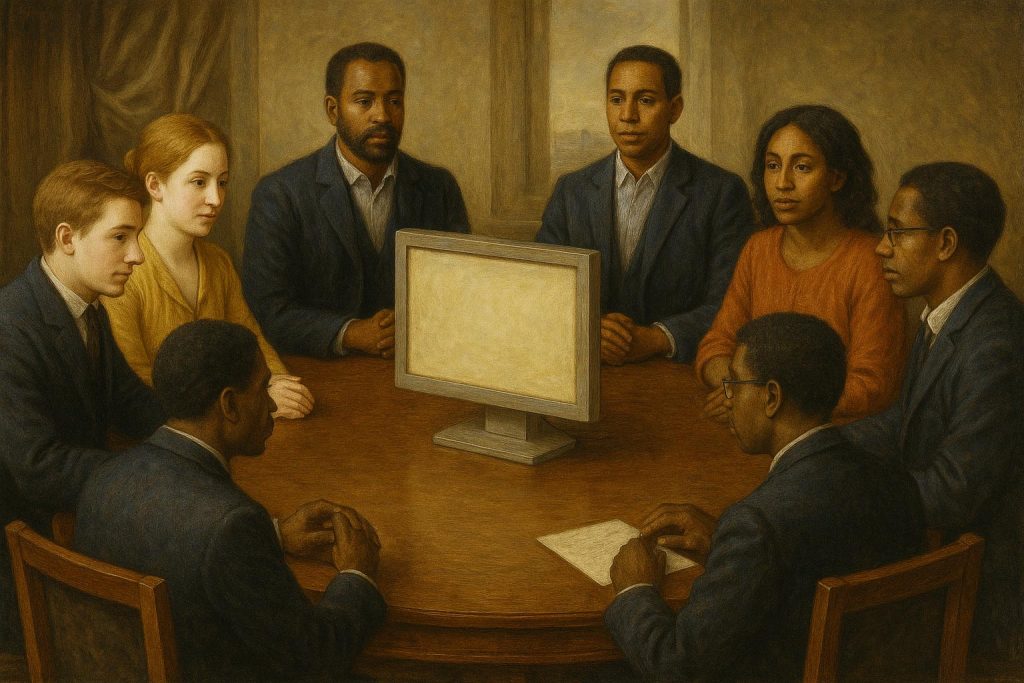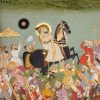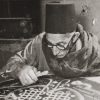A Radical Beginning
In 2016, the blockchain world unveiled its most audacious experiment: The DAO, short for Decentralised Autonomous Organisation. Billed as “a company without a boss,” it sought to prove that the rules of business could be stripped from boardrooms and balance sheets and re-written as lines of code. There would be no CEO to answer to, no hierarchy of managers, no national borders — only a collective of token-holders voting on proposals, their decisions executed automatically by smart contracts. Within weeks, strangers from around the world had invested over $150 million worth of ether, making it the largest crowdfunding project in history at the time. To its supporters, The DAO was more than a start-up; it was the prototype of a new economic order, one that promised to redefine not just how we work, but how we own, govern, and share wealth in the digital age.
The Collapse That Changed Everything
But the utopia was short-lived. Only weeks after launch, a hacker found a flaw in The DAO’s code and siphoned away $50 million worth of ether. The problem wasn’t corruption or embezzlement in the traditional sense — it was mathematics, exploited line by line. In theory, the organisation had no boss to betray its investors; in practice, this also meant no safety net when things went wrong. The Ethereum community faced an agonising dilemma: should they accept the loss as proof that “code is law,” or should they intervene to rewrite history and restore the stolen funds? In the end, they chose the latter, splitting the blockchain in two — Ethereum and Ethereum Classic — and sparking a philosophical debate that continues to shadow the idea of decentralised governance. The incident revealed both the promise and the peril of organisations without leaders: absolute transparency and automation on one side, but the risk of catastrophic failure without human judgment on the other.
What Is a DAO?
To understand why The DAO mattered, it helps to grasp what a Decentralised Autonomous Organisation actually is. At its core, a DAO is a digital co-operative: a group of people who pool resources, make decisions collectively, and enforce those decisions automatically through blockchain code. If Bitcoin decentralised money, and Ethereum decentralised computing, DAOs aim to decentralise governance itself. They represent an attempt to answer a question posed long before the internet existed: why do we even need firms in the first place?
In his seminal 1937 essay The Nature of the Firm, economist Ronald Coase argued that companies arose because they reduced the “transaction costs” of doing business — negotiating contracts, coordinating workers, enforcing agreements. For more than a century, managers and bureaucracies have filled that role. DAOs propose something more radical: that code can now take over those functions, lowering the cost of coordination without needing bosses at all. It is a bold idea — that the corporation, the bedrock institution of modern capitalism, might be supplanted by software.
A Response to Corporate Failure
DAOs emerged not only as a technical experiment but as a critique of the corporate structures that dominate the modern economy. Traditional firms are efficient at scale but often poor at equity. Decision-making power rests with executives and shareholders, while workers — the people who create value — are left with little influence and, too often, stagnant wages. Transparency is scarce: boardroom deliberations are sealed away, and accountability only trickles down in the form of annual reports or corporate scandals splashed across headlines.
The sociologist Max Weber once described bureaucracy as the defining feature of modern organisations: rule-bound, hierarchical, and efficient, but also rigid and alienating. DAOs propose to flip this model. In theory, they make governance radically transparent, with every decision recorded on an immutable blockchain. Participation becomes more direct: token-holders can propose initiatives and vote on them, bypassing management layers altogether. Ownership, too, is reimagined, with contributors rewarded in tokens that double as both currency and a share of power. For advocates, DAOs promise to resolve what Karl Marx once called the “despotism in miniature” of the firm — a system where control is centralised, yet labour is alienated from ownership.
Can Code Be a Company?
Yet no organisation, however radical its design, can exist entirely outside the law. For all their talk of decentralisation, DAOs quickly ran into a fundamental problem: in the eyes of courts and regulators, they didn’t exist. They could pool millions in capital, coordinate thousands of people across borders, and fund real-world projects — but without legal personality, they could not sign contracts, own property, or be held accountable in the same way as a corporation. If something went wrong, liability fell in a grey zone: were token-holders co-owners? Were developers legally responsible for every line of code? Or were DAOs nothing more than loose associations with no protections at all?
This legal vacuum began to close in 2021, when the US state of Wyoming — historically known for pioneering corporate forms, having created the first LLC in 1977 — became the first jurisdiction to formally recognise DAOs as legal entities. Under its framework, DAOs can register as limited liability companies, giving them corporate personhood. They can sue and be sued, own assets, and enter into contracts — all while running their internal governance through blockchain code. Other states, including Tennessee and Vermont, have followed with their own versions. Beyond the United States, Switzerland’s “Crypto Valley” has treated DAOs as associations, allowing them to operate under existing civil law. The Marshall Islands has gone even further, creating bespoke legislation to attract DAOs to incorporate there.
The significance is hard to overstate. When the joint-stock company gained legal recognition in the 17th and 18th centuries, it revolutionised capitalism by allowing capital to be pooled across investors while limiting liability. Today, DAOs hint at a similar transformation. They are not just digital clubs but entities recognised in law, capable of bridging the gap between algorithmic governance and the “real” economy. But this recognition comes with a paradox: can DAOs maintain their radical promise of decentralisation if they become subject to the same compliance regimes, tax codes, and hierarchies of the corporate world? Or does legal recognition tame the very rebellion they were meant to embody?
Experiments at the Frontier
The tension between radical decentralisation and legal recognition becomes clearer when we look at how DAOs are already operating in the world. Perhaps the most influential example is MakerDAO, which runs a decentralised credit system responsible for issuing DAI, a so-called “stablecoin” pegged to the US dollar. Unlike traditional banks or even central banks, MakerDAO’s monetary policy is debated and voted on by thousands of token-holders scattered across the globe. Decisions about interest rates, collateral requirements, and risk management — the very levers of financial stability — are made not by technocrats in suits but by a distributed community whose votes are recorded permanently on the blockchain. It is, in many ways, a central bank without a state, operating in the full glare of transparency.
Then there was ConstitutionDAO, a more whimsical but no less revealing experiment. In late 2021, a group of strangers on the internet raised more than $40 million in a matter of days to bid on a rare copy of the US Constitution at a Sotheby’s auction. They ultimately lost to a billionaire hedge fund manager, but the speed and scale of the mobilisation startled even seasoned observers. Here was proof that DAOs could channel enormous sums of money and collective energy towards a shared goal with unprecedented speed — but also that, without legal structures to hold assets or engage with institutions, their ambitions could be easily thwarted.
Other DAOs have taken on cultural and humanitarian missions. PleasrDAO, a collective of crypto enthusiasts, pooled funds to purchase and safeguard culturally significant works, including Wu-Tang Clan’s one-of-a-kind album Once Upon a Time in Shaolin. UkraineDAO, launched in the first weeks of Russia’s invasion, raised millions in crypto to support humanitarian aid, showing how DAOs can act as rapid-response funding vehicles where traditional NGOs are slowed by bureaucracy.
Each of these examples illustrates both the promise and the fragility of DAOs. They demonstrate that communities can coordinate across borders and at scale, raising and deploying capital with astonishing speed. Yet they also reveal the limits of working outside established legal systems. Without recognised status, DAOs cannot easily hold assets, enter into enforceable contracts, or guarantee accountability — making them reliant, paradoxically, on the very intermediaries they were designed to displace.
Work Without Employers
If DAOs challenge the structure of the corporation, they also disrupt our understanding of work itself. In the traditional firm, the relationship between employer and employee is clearly defined: workers provide labour in exchange for wages, while shareholders and executives control ownership and decision-making. In a DAO, these boundaries blur. Contributors might be anywhere in the world, completing tasks, writing code, or offering services, not for a fixed salary but for governance tokens that grant both financial upside and a say in decision-making. Labour becomes investment; participation becomes ownership.
This shift raises unsettling questions. Are contributors in DAOs employees, contractors, or co-owners? If a person depends on tokens for their livelihood, do they have rights to job security, healthcare, or fair treatment — or are they simply participants in a digital marketplace? Employment law, designed for national firms and 9-to-5 jobs, offers little guidance here. If a dispute arises — over pay, discrimination, or dismissal — who is accountable? The DAO as a collective? The developers who wrote its code? Or every token-holder, spread across dozens of jurisdictions?
Optimists see in this model the chance to rebalance power between labour and capital. If workers are also owners, then the alienation Karl Marx described — where labour is divorced from its rewards — could be overcome. DAOs, in this view, are digital co-operatives where those who create value finally share in both profits and governance. Pessimists, however, warn that DAOs risk reproducing old inequalities in new language: wealthier token-holders wield disproportionate influence, and precarious contributors may find themselves with no legal protections at all.
The sociologist Ulrich Beck described modern life as a “risk society,” where individuals carry burdens once absorbed by institutions. DAOs are emblematic of this shift. They strip away hierarchy and bureaucracy, but they also place risk — of failure, exclusion, or exploitation — squarely on the shoulders of the individual. In doing so, they force us to confront a deeper question: if the company without a boss is the future, who will protect the workers when the code does not?
Politics, Power, and Plutocracy
The rise of DAOs does not only unsettle the workplace; it also challenges the foundations of corporate law and political economy. Since the industrial revolution, the joint-stock company has been the dominant vehicle for organising capital. Its legal recognition — limited liability, the ability to contract, the fiction of corporate “personhood” — enabled global capitalism to scale. DAOs represent a different kind of fiction: the idea that a string of code on a distributed ledger could itself be a legal actor, coordinating human and financial resources across borders without a headquarters, an office, or even a postal address.
This prospect creates both excitement and unease for regulators. How do you tax an organisation with no jurisdiction? How do you regulate a workforce that spans continents, with no HR department and no payroll? And if DAOs are recognised as legal entities, as they now are in Wyoming and the Marshall Islands, what happens when their rules collide with national laws on securities, employment, or consumer protection?
The potential reach of DAOs stretches beyond economics into politics itself. Some see them as prototypes of digital democracy — communities where citizens vote directly on issues, where governance is transparent, and where accountability is recorded immutably on-chain. Others fear the opposite: that DAOs become plutocracies, where power is tied to token ownership and wealth buys influence, echoing the inequalities of existing systems but cloaked in technological novelty.
In this sense, DAOs sit at a crossroads between the libertarian dream of governance without states and the communitarian hope of global co-operatives. They could entrench the dominance of wealthy insiders, or they could widen access to decision-making in ways the modern nation-state has often failed to achieve. The direction they take will depend not only on code, but on the laws, cultures, and communities that grow around them.
The Closing Ledger
From their chaotic birth in 2016 to their cautious recognition in courtrooms and legislatures today, DAOs have travelled a remarkable distance in less than a decade. They began as a rebellion against the bureaucracies of the corporate world, promising a company without a boss — a structure where decisions were transparent, ownership was shared, and governance was coded into the fabric of the organisation itself. Along the way, they have revealed both the radical possibilities of decentralised coordination and the hard limits of attempting to replace human judgment with algorithms.
Legal recognition in places like Wyoming and the Marshall Islands suggests that DAOs are no longer fringe experiments but potential pillars of a new economic order. Yet with recognition comes compromise. The more DAOs are absorbed into the frameworks of corporate law and taxation, the more they risk resembling the very hierarchies they were built to escape. And as they creep into the domains of work, finance, culture, and even politics, the stakes only grow larger: these are no longer games of speculation but questions of power, equity, and accountability.
Whether DAOs ultimately transform the economy or remain a fascinating footnote in the history of blockchain will depend on choices still to come. Will they become tools of genuine participation, where workers and contributors finally share in both profits and decision-making? Or will they become vehicles for a new kind of digital plutocracy, ruled by the wealthiest token-holders? The answer lies not only in the code but in the communities and laws that surround it.
For now, DAOs remain laboratories of the future — fragile, messy, and unfinished. But they remind us that the way we work and organise is not fixed. Just as the joint-stock company reshaped capitalism in the industrial age, DAOs force us to imagine what forms it might take in the digital one. The question is not only whether the company without a boss can work, but what kind of society it might build if it does.
By Pritish Beesooa, Head of Blockchain & Web3 Development











